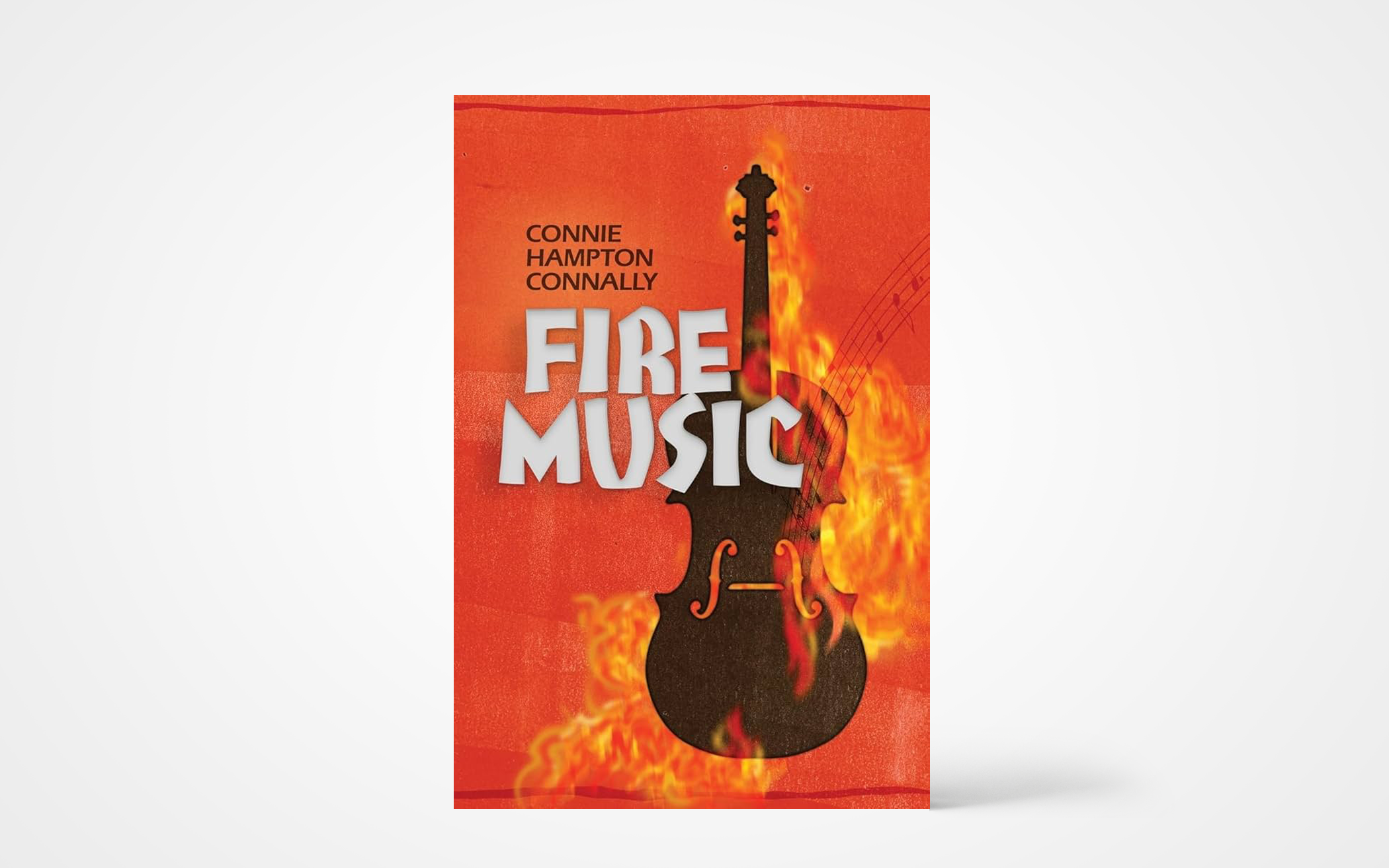“Sir!”
Hungarian violinist and composer Varga Antal hardly glances back. Why should he care when here in the Budapest Opera House a woman calls to him in a language he doesn’t know?
It’s 2007, after all, and she’s a 30-something-year-old American in rumpled jeans. Antal is 78 and prominent.
Then she says a name. The name. The one he has refused to say to himself for 62 years.
“Varga Sándor.”
Sándor? Whom he hasn’t seen since 1945?
Fire Music tells the story of Hungarian youths in 1944-45 who experience something no one wishes: first, German cruelties, then Russian. These teens meet war’s chaos and death—trauma, we’d say—while wanting only to find their way and, perhaps, fall in love.
Fire Music also tells the story of American Lisa Denman, newly divorced, who travels to Hungary, carrying yellowed sheet music. What can she learn of the untold story?
These characters linger with me. In 2006, there’s handsome Kristof, Antal’s son; Antal himself; and Lisa. In 1944, there’s Márta, a young cellist who lifts her bow to defy the dark time and live—and Antal’s sweet love for her. As they linger, questions pester me. Why is Márta missing from 78-year-old Antal’s life? And what happened to cousin Sándor?
Fire Music moves us readers from 1944-45 Hungary to 2007 Hungary. This device lets us enter an era now gone and feel it—the mocking Arrow Cross men on the streetcar to the precious worth of one egg.
I learned about music, too: how musicians use sound in the way I use words, how pivotal and vital the arts are in a time of oppression, and how very necessary the arts are in our day too.
Connie Hampton Connally’s faithful commitment to Christianity shows in her story. Transcendent love hovers beneath her words. While she doesn’t preach or push, redemption shows gold in believable character arcs. Suffering is noticed and never shamed; rather, it’s handled as if holy.
Language and adult themes are used at times to serve the reality of war-torn Hungary.
Fire Music won the 2022 Scriptoria Award for Literary Fiction. Connally’s prior work, The Songs We Hide (Coffeetown Press, 2018), is set in 1951 Hungary, where Russian rule smothers. While Fire Music isn’t a sequel, we do see some characters again.
Music led Connally to her stories. She writes, “I’ve often been asked if I’m Hungarian. I’m not. My interest in Hungary’s turbulent history grew out of my love of music.”
Fire Music is an ennobling and soul-moving read—perfect book club reading. (Coffeetown Press).
About the Author
Cynthia Beach authored the 2024 novel, The Surface of Water, and the writing book, Creative Juices for Writers. She co-directs Scriptoria Workshop with Newbery-winner Gary Schmidt. In 2025-6, she will serve as Artist in Residence in Dundee, Scotland.

